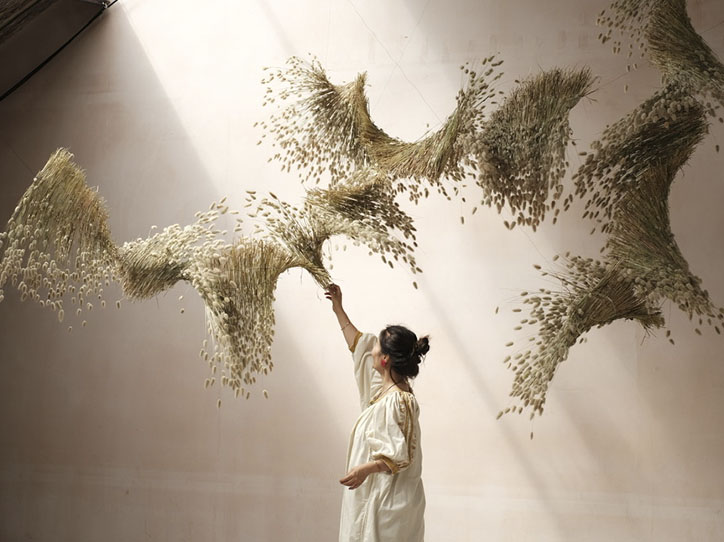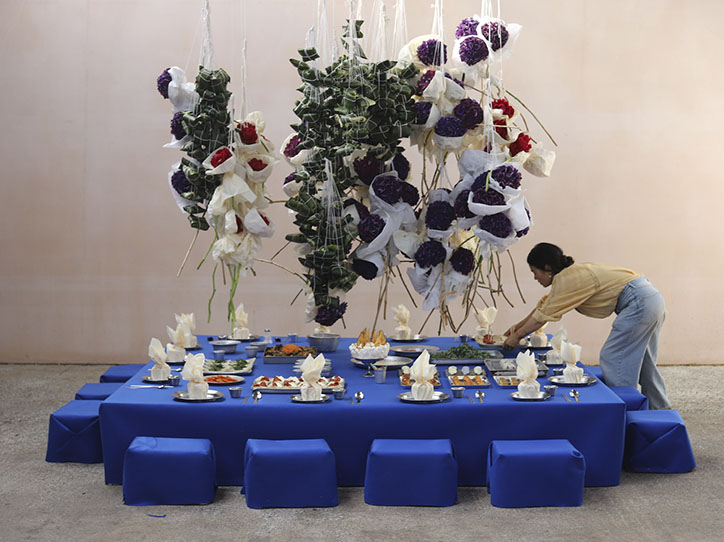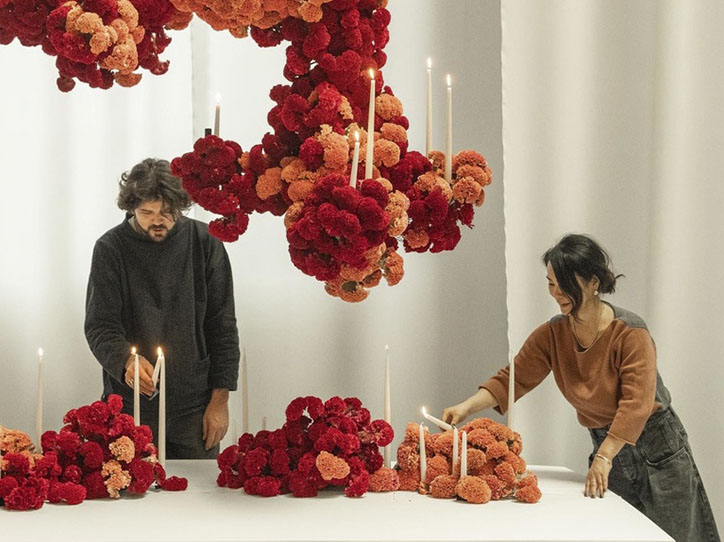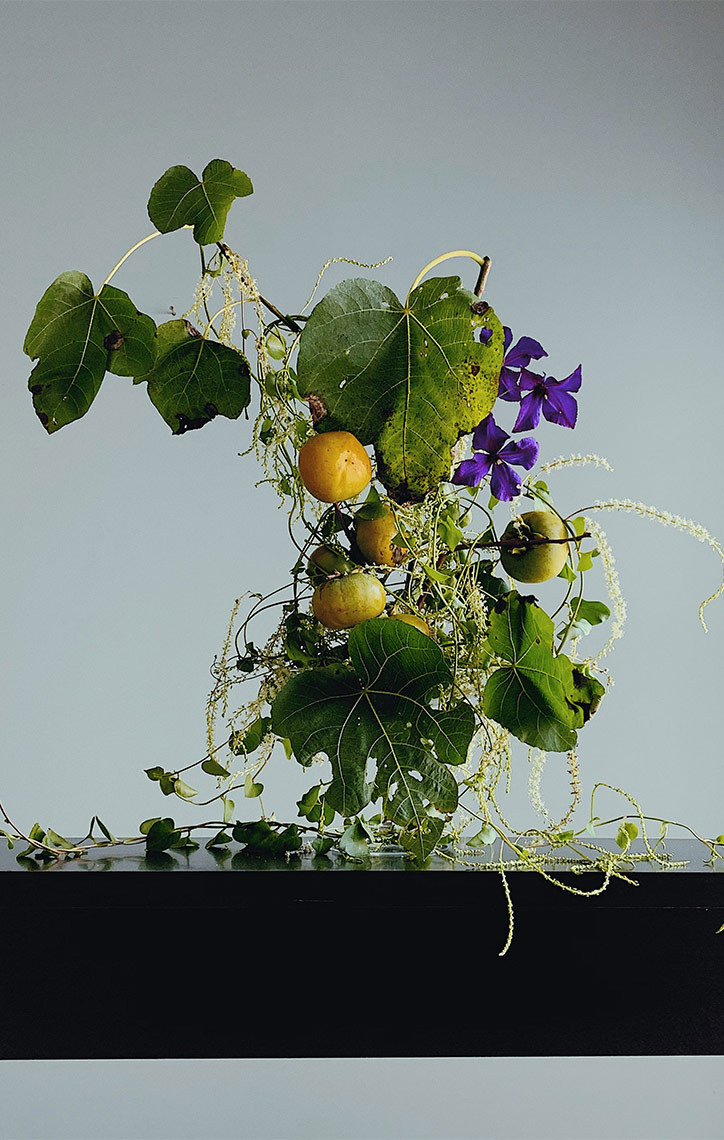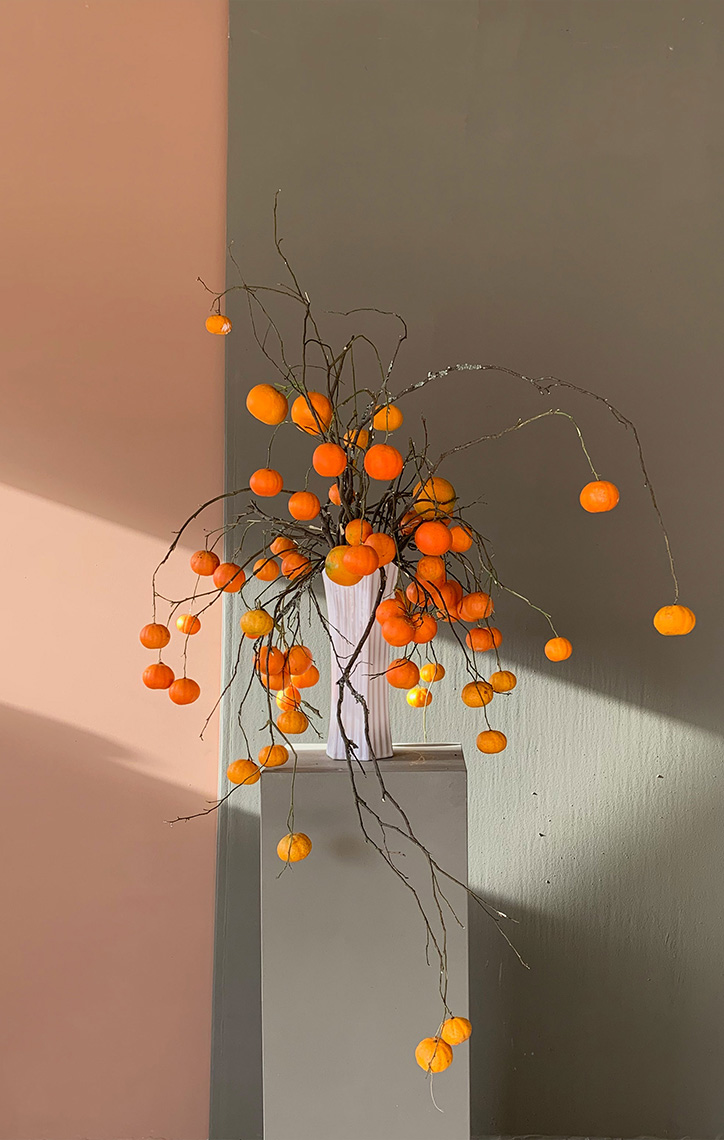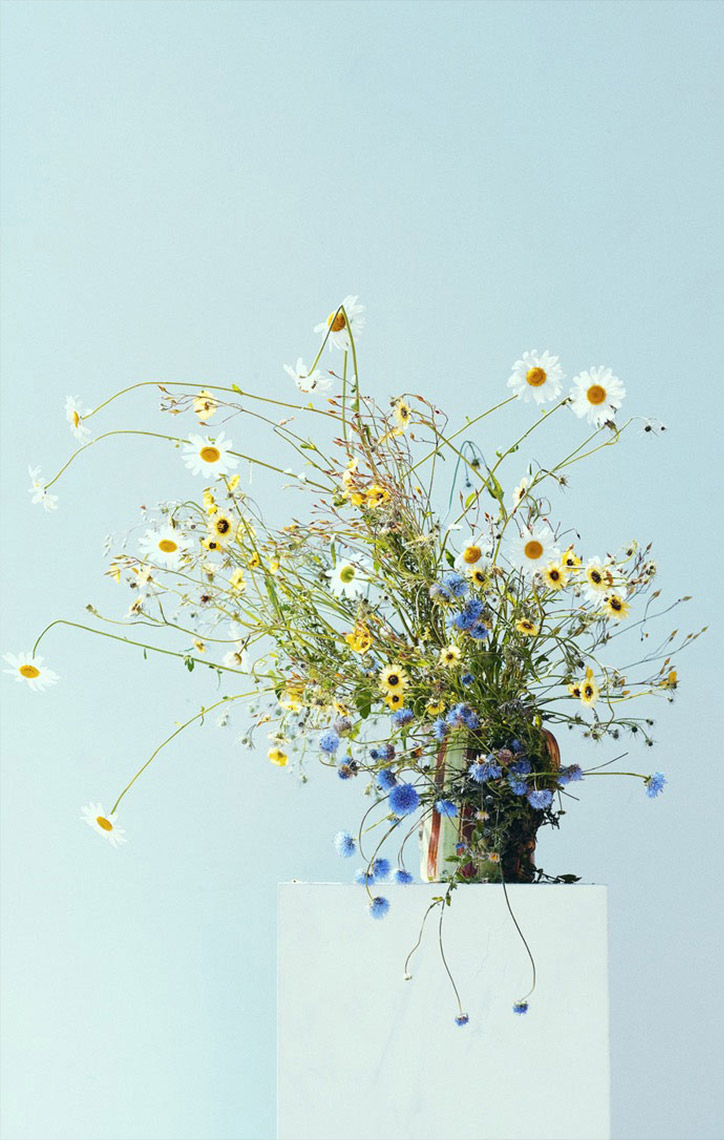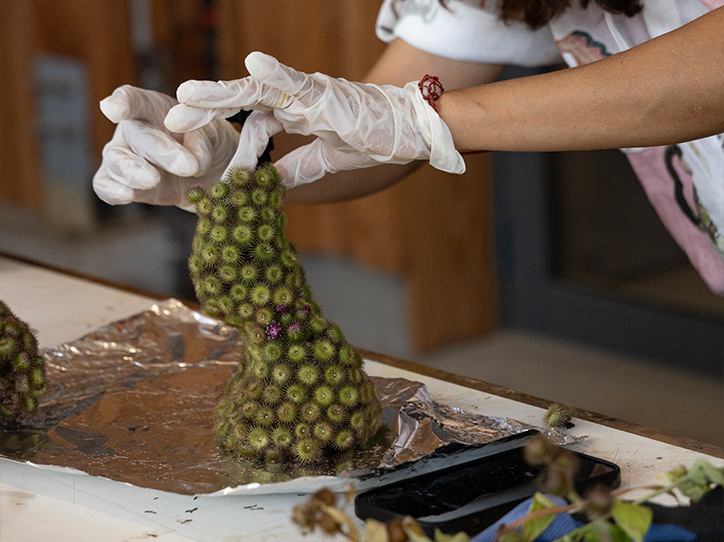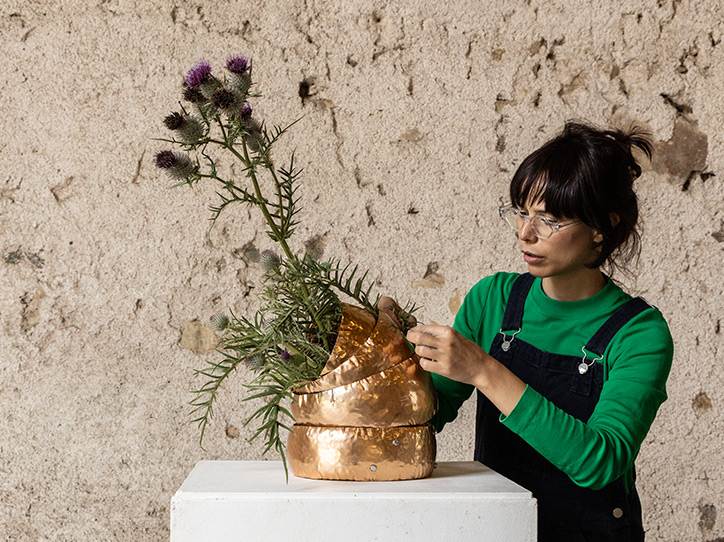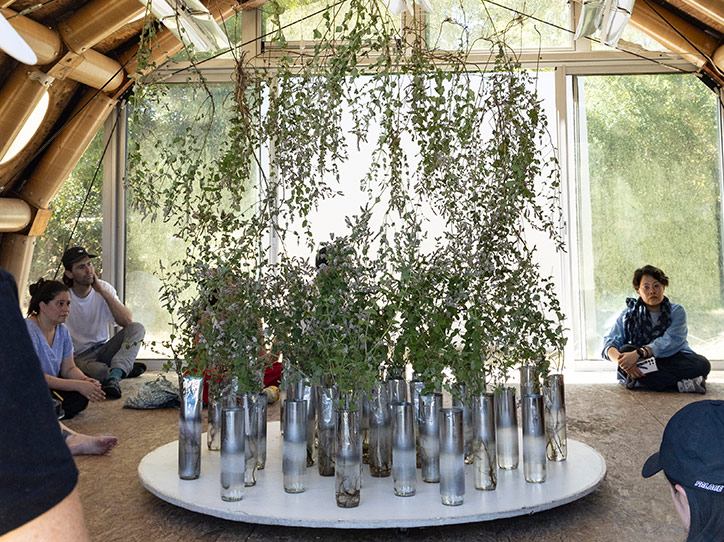Frida Kim (KR) + Wagner Kreusch (BR)
Ephemeral Spaces: Crafting Nature’s Transience
août 3rd – août 9th 2025
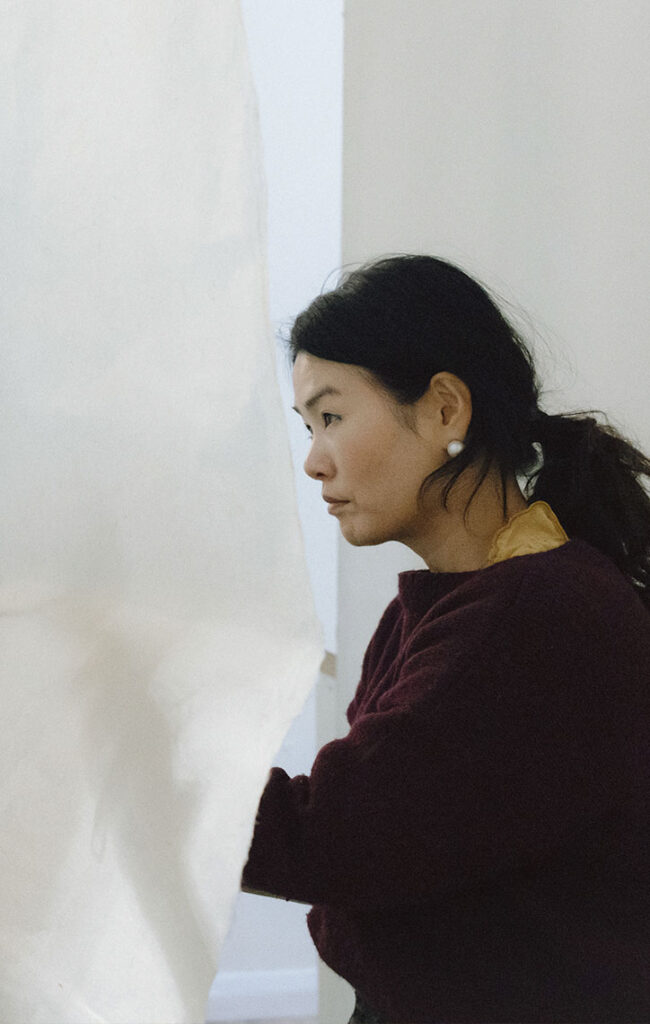
Frida Kim Korea, Republic Of
La vie et le travail de Frida Kim sont profondément influencés par ses premières années passées dans la beauté intacte de la campagne coréenne, où sa connexion à la nature façonne son processus créatif. Elle cherche à capturer l’essence du monde qui l’entoure, en mêlant perspectives orientales et occidentales inspirées par une variété d’expériences culturelles et personnelles. Portée par une démarche durable et un engagement envers l’authenticité, son travail se distingue par sa simplicité et son élégance.
Son étude de l’Ikebana, l’art japonais de l’arrangement floral, a profondément marqué son approche. Les principes d’équilibre, d’harmonie et la beauté de l’imperfection nourrissent sa pratique, qu’elle conçoit autour de ces notions fondamentales. Sa philosophie évolue en permanence, guidée par les changements constants du monde environnant. En embrassant l’impermanence, Frida considère la vie et son travail comme un mouvement fluide et continu, semblable à l’écoulement d’une rivière.
L’enseignement est devenu une part essentielle de son parcours, lui permettant de transmettre son savoir et d’inspirer d’autres personnes à cultiver l’authenticité dans leur démarche créative.
www.fridakim.com
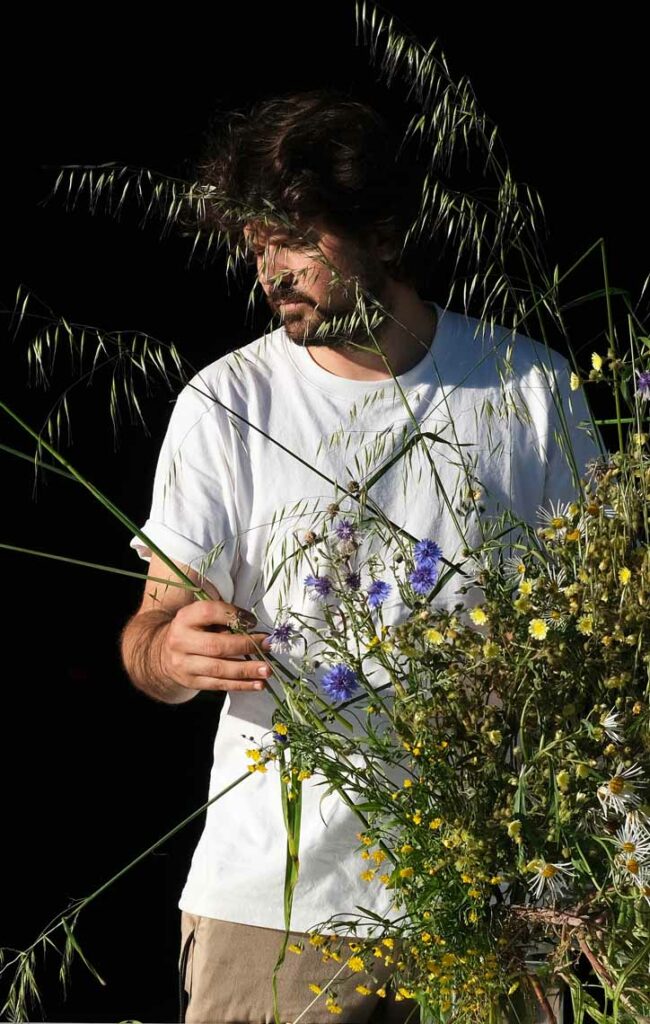
Wagner Kreusch Brazil
L’engagement de Wagner Kreusch en faveur d’une pratique plus durable de la fleuristerie est profondément lié à sa compréhension du médium comme forme d’art à part entière et expression culturelle. Kreusch a étudié à la prestigieuse école Sogetsu d’Ikebana, sous la supervision du défunt maître d’Ikebana et ancien directeur de Sogetsu Londres, M. Shigeo Suga. Aujourd’hui, il est enseignant certifié de l’école Sogetsu, pratiquant et transmettant cet art floral japonais contemporain.
Né au Brésil, Kreusch est surtout connu pour sa longue carrière consacrée à l’enseignement de la fleuristerie. Son travail graphique et sculptural est fortement inspiré de l’Ikebana contemporain. Fils de fleuriste, il a grandi à la campagne et a eu la chance unique de côtoyer des environnements naturels intacts, aujourd’hui menacés dans son pays natal.
En 2017, il cofonde la célèbre London Flower School, où il occupe le poste de directeur artistique avec pour objectif de faire reconnaître la fleuristerie comme une forme artistique à part entière et de mettre sa voix de pédagogue au service d’une industrie qui le passionne. Au cours de la dernière année, Kreusch a choisi de s’immerger pleinement dans le jardin, entamant une nouvelle phase de sa pratique artistique. Il cherche ainsi à éveiller les consciences autour du métier de fleuriste, dans l’espoir que davantage de personnes puissent faire l’expérience de ses puissantes vertus thérapeutiques, tout en soulignant la fragilité croissante de nos environnements naturels.
www.wagnerkreusch.com
Ephemeral Spaces: Crafting Nature’s Transience
août 3rd – août 9th
Workshop Categories
The Workshop
Les espaces éphémères, par définition temporaires, naissent souvent en réponse à des interactions sociales, à des événements culturels ou à des interventions artistiques. Contrairement à l’architecture permanente, qui impose un ordre spatial fixe, ces espaces sont fluides et adaptatifs, évoluant en fonction du contexte, des contraintes matérielles et de la présence humaine. Ils deviennent des zones de rencontre provisoires, dont les contours varient selon les mouvements, la perception et la participation. Une même structure peut ainsi, à un moment donné, offrir un refuge intime, puis se transformer en scène pour une expérience collective. En ce sens, les espaces éphémères remettent en question notre conception de l’accès, de l’intimité et du sentiment d’appartenance.
Guidé·es par Wagner Kreusch et Frida Kim, ce workshop sera dédié à la création d’espaces éphémères à partir de matériaux botaniques — fleurs, branches, feuilles et autres éléments organiques. À mesure que ces matériaux se transforment, se fanent ou se décomposent, les participant·es seront invité·es à explorer un processus de création qui accueille le changement et l’impermanence. À travers une série d’expérimentations, nous observerons comment ces installations définissent des seuils, des enveloppes, des relations spatiales, en équilibre entre ouverture et retrait. Les discussions porteront sur le rôle de l’éphémère dans l’art et le design, interrogeant la manière dont les structures temporaires influencent l’interaction, le rituel et la mémoire.
Pendant une semaine, les participant·es exploreront comment les cycles fugaces de la nature peuvent enrichir notre manière de concevoir et de vivre l’espace. Rejoignez-nous pour créer des installations botaniques qui n’existent que dans le présent — mais laissent une impression durable !
Hébergement
L’hébergement et la nourriture sont inclus
Nous sommes en mesure de répondre aux demandes de régimes alimentaires particuliers
Tous les participants dorment dans des dortoirs
Pour réserver une chambre privée ou pour venir accompagné d’invités supplémentaires, contactez-nous: workshops@boisbuchet.org
Éducation
Notre équipe est disponible pour vous aider à conceptualiser et à produire vos objets de design
Les outils et les matériaux sont fournis par Boisbuchet
Tous les enseignements des ateliers sont dispensés en anglais
Le nombre de participants est limité à 22
Activités
Feu de camp hebdomadaire, exposition et visite guidée du Domaine
3 conférences de designers
La célèbre fête Porky’s du mercredi


